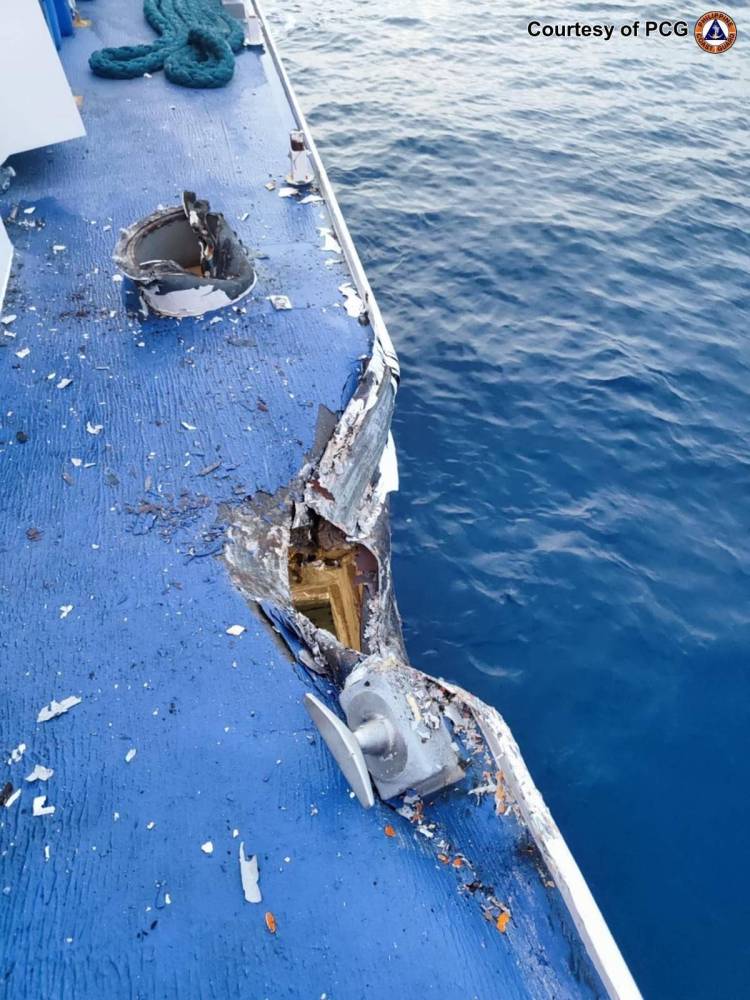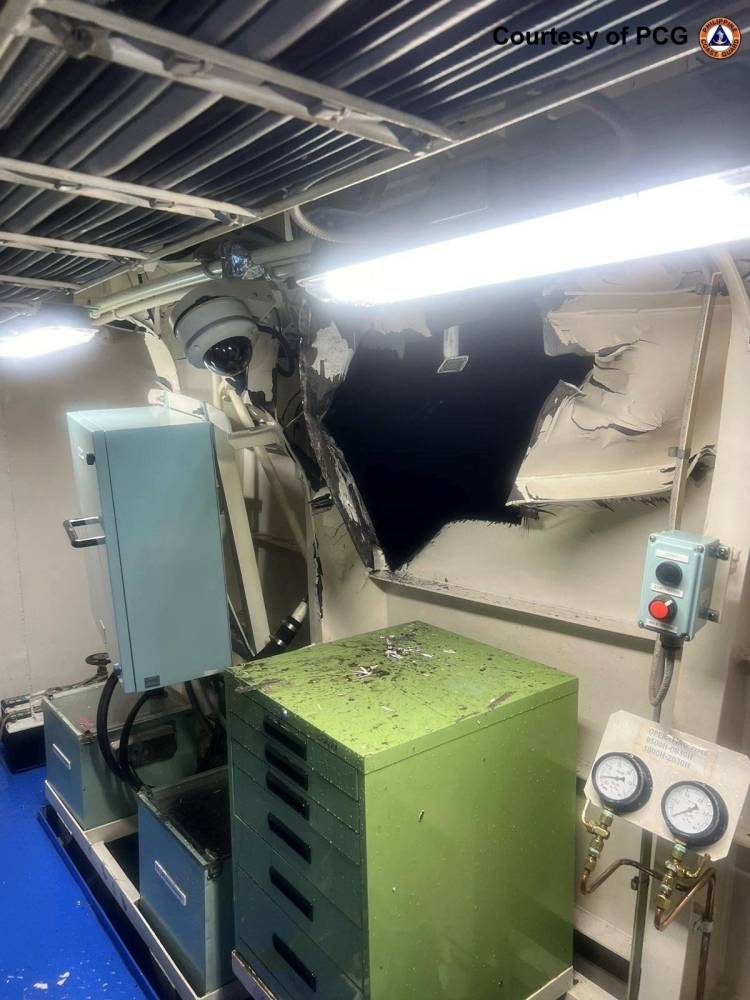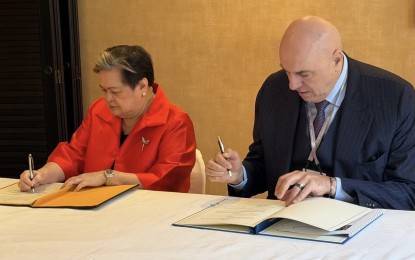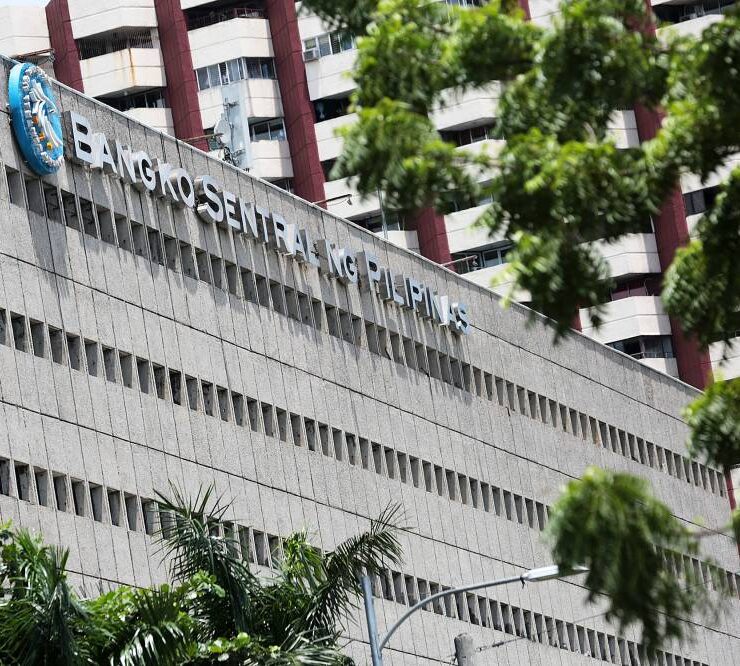2 PCG ships damaged in collision with Chinese vessels

The government on Monday said two Philippine Coast Guard (PCG) ships were damaged in collisions with Chinese vessels that were engaging in “unlawful and aggressive maneuvers” near Escoda (Sabina) Shoal, setting off a new flashpoint between Manila and Beijing.
PCG ships BRP Bagacay (MRRV-4410) and BRP Cape Engaño (MRRV-4411) were en route to resupply outposts Patag (Flat) and Lawak (Nanshan) islands before dawn on Monday when they were met by China Coast Guard (CCG) vessels, whose maneuvers “resulted in collisions causing structural damage” to both ships, according to a statement by the National Task Force for the West Philippine Sea read by National Security Council Assistant Director General Jonathan Malaya in a media forum.
China claims the submerged reef, which it calls Xianbin Jiao, although it is only 139 kilometers (75 nautical miles) from the coast of Palawan, well within the Philippines’ exclusive economic zone.
“Our vessels suffered severe damage—[BRP Bagacay] sustained a three-foot hole on its auxiliary room and another one-foot dent on its starboard (right side) quarter,” he said over the government television program “Bagong Pilipinas Ngayon.”
BRP Cape Engaño, on the other hand, sustained a 1.1-meter hole on its starboard side and a 40-centimeter damage to the engine exhaust, also on the starboard quarter, Malaya added.
Filipino crew were unharmed from the encounter and proceeded with their mission of delivering essential supplies to personnel stationed on Patag and Lawak islands. The Philippines has nine occupied outposts in the Spratly Islands in the West Philippine Sea.


Chinese version debunked
CCG spokesperson Gan Yu earlier claimed that the PCG ships “illegally entered the waters near Xianbin Reef… without permission from the Chinese government,” prompting it to take “control measures in accordance with the law.”
He accused the PCG vessels of ignoring “repeated solemn warnings,” leading to a collision with China’s boats.
“The Philippine side is entirely responsible for the collision,” Yu claimed.
Malaya slammed China’s version of the incident and accused Beijing of releasing “spliced and misleading videos.”
“We condemn this deliberate attempt … to change the narrative and create their own scenarios and reality of what happened,” Malaya said, noting that there were members of the international press on board the PCG ships and “the truth will later come out.”
He clarified that while Escoda Shoal was not part of the original preliminary understanding, such “act of goodwill” presupposes that China would refrain from doing “dangerous maneuvers” in other areas in the West Philippine Sea.
PCG spokesperson for the West Philippine Sea Commodore Jay Tarriela said it was the first violent confrontation between the two countries in the vicinity of Escoda.
Retired Navy Rear Adm. Rommel Jude Ong viewed the latest incident as a “mission kill” tactic that China similarly employed in Ayungin (Second Thomas) Shoal.
“China doesn’t aim to sink our ships, just destroy them. Those two coast guard vessels will eventually return to harbor and undergo repair. It will take maybe six months of repair and it will be out of commission. We only have 10 of these ships and we could run out of [vessels], the way we ran out of Unaizah May boats in Ayungin,” he said in the same forum, referring to the vessels used during resupply missions to Ayungin that were eventually replaced due to damage from ramming and water cannons by Chinese ships.
Affront to sovereignty
Lawmakers condemned the latest aggression by Chinese vessels.
Senate Majority Leader Francis Tolentino said the Philippines should evaluate China’s sincerity in pursuing a peaceful resolution of the maritime dispute between the two countries following the Escoda incident.
Sen. Grace Poe also denounced China’s “latest irresponsible maneuvers,” saying such actions only jeopardized the “freedom of sea routes guaranteed under international laws” and put at risk the safety of the PCG personnel.
Speaker Martin Romualdez urged China to exercise restraint and stop actions that endanger lives and violate established international rules.
Romualdez maintained that the path forward was dialogue and mutual respect and not aggression, pointing out that regional security depended on such.
He described the CCG’s action as a “direct affront to our sovereignty and a blatant violation of international law,” specifically the United Nations Convention on the Law of the Sea.
He urged the international community to take cognizance of China’s “dangerous” actions which, he said, threatened regional stability and freedom of navigation in the area. —WITH REPORTS FROM MARLON RAMOS AND JEANNETTE I. ANDRADE





















